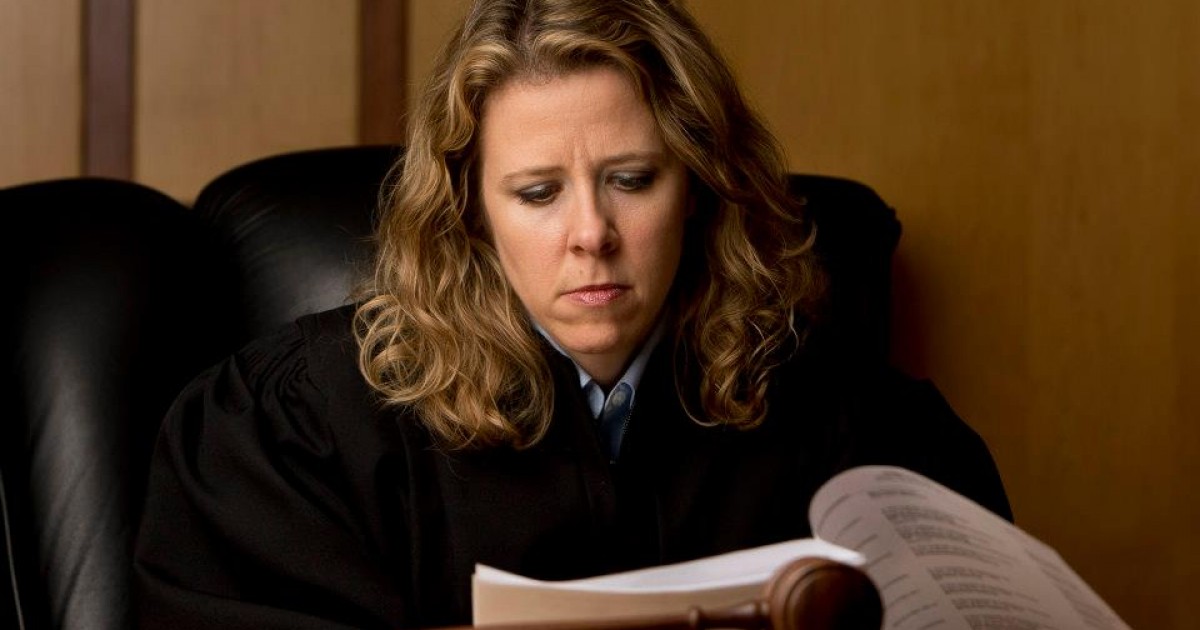Supreme Court Rules Against Open Records
Conservative majority exempts Schimel’s training videos from disclosure.
State Supreme Court Justice Rebecca Bradley and her four conservative colleagues on the State Supreme Court Wednesday knocked a huge hole in the state’s open records law that will allow law enforcement to bury records it doesn’t want the public to see.
Bradley, writing for the majority, noted the state’s commitment to public access to records — “Wisconsin is firmly committed to open and transparent government” — then cut a big chunk away from it.
As Justice Shirley Abrahamson put it in a dissent, “The question for me is: What has the majority achieved with its opinion grounded in speculative, abstract, and unsubstantiated fears? The answer for me is: A dimming of the light on public oversight of government, especially in matters pertaining to criminal justice.”
Bradley was joined by Justices Michael J. Gableman, Daniel Kelly, Patience Roggensack and Annette Ziegler.
Abrahamson was joined in her dissent by Justice Ann Walsh Bradley.
Rebecca Bradley wrote that in a 2009 training video, Schimel — then Waukesha County district attorney — “shared the specific strategies and techniques he used, and he provided numerous case-specific examples, even on occasion referring to the cases by name.”
“The reason for protecting prosecutorial techniques and local police strategies is obvious: if local criminals learn the specific techniques and procedures used by police and prosecutors, the disclosed information could be used to circumvent the law,” she wrote. The content of the 2009 video falls squarely into this category.”
Abrahamson noted that Bradley cited the federal Freedom of Information Act as support for her ruling, though access to state law is governed by state law, which provides more access to records. In addition, she said, the DOJ should have considered redacting the video, rather than banning its release outright.
“The majority opinion baldly asserts that redaction is not an option because the records at issue are videos, rather than text documents, and cannot be redacted,” Abrahamson wrote. “Nothing in the record reveals whether this assertion is true. If it is true, a transcript can be prepared and redactions shown….It appears, however, that videos can be redacted.”
The majority “dismisses valid public policy concerns while embracing hollow talk lauding the secrecy of publicly known prosecutorial strategy and police techniques,” Abrahamson said.
The 2013 video showed Schimel discussing a highly publicized high school sexual extortion case that he prosecuted in Waukesha. Rebecca Bradley said releasing the video could retraumatize the victims.
She also said the video was akin to a prosecutor’s closed case files, which Bradley contended are exempt from disclosure.
Abrahamson, though, said the non-disclosure rule was intended to protect confidential informants’ identities and prosecutors’ discretion. Case law “did not enshrine the entire prosecutorial file beyond the public’s view,” she wrote. “This court has recognized that not all documents in a prosecutor’s file are subject to the commonlaw exception to disclosure.”
She also questioned how far the majority’s victim protection rationale would take it.
“The majority opinion offers no workable limits on when protection of crime victims will or will not outweigh the presumption of openness,” Abrahamson said. “When a victim of a crime is not identified but is implicated in the record, what is the weight of the thumb on the scale for nondisclosure?”
Gretchen Schuldt writes a blog for Wisconsin Justice Initiative, whose mission is “To improve the quality of justice in Wisconsin by educating the public about legal issues and encouraging civic engagement in and debate about the judicial system and its operation.”
Court Watch
-
No Unemployment Benefits For Worker Making Homophobic Remarks
 May 17th, 2022 by Gretchen Schuldt
May 17th, 2022 by Gretchen Schuldt
-
Appeals Court Upholds Injunction Against Abortion Protester
 Mar 13th, 2022 by Gretchen Schuldt
Mar 13th, 2022 by Gretchen Schuldt
-
80% of State’s Judicial Races Uncontested
 Feb 20th, 2022 by Gretchen Schuldt
Feb 20th, 2022 by Gretchen Schuldt




















